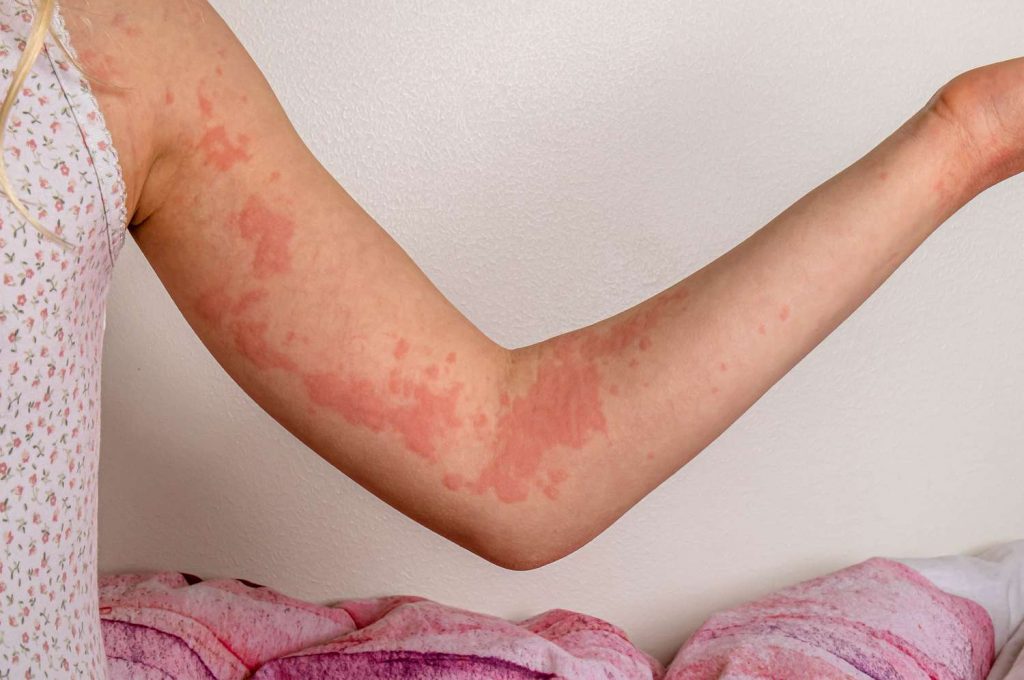
Allergies are an excessive or improper immune system reaction to substances that are typically harmless to most people. These substances, called allergens, can include pollen, dust, food items, animals, medications, and many others.
Allergic dermatitis
is an inflammatory skin condition caused by an allergic reaction to substances in the environment. This can include contact with certain chemicals, plants, metals, etc. Symptoms include itching, redness, swelling, and blister formation on the skin.
Allergic arthritis
is an inflammatory joint condition caused by an allergic reaction. Typically, this manifests as joint inflammation after exposure to specific allergens. Symptoms may include pain, swelling, limited movement, and other signs of inflammation.
Psoriasis
is a chronic inflammatory skin condition characterized by the appearance of red, dry patches on the skin covered with silvery scales. While the exact causes of psoriasis are unknown, it is believed to be an autoimmune disease, where the immune system attacks healthy skin cells, causing them to renew rapidly. Psoriasis can be exacerbated by stress, skin trauma, infections, and other factors.
Each of these conditions requires an individualized approach to treatment, which typically involves the use of anti-inflammatory drugs, antihistamines, immunomodulators, and other methods aimed at relieving symptoms and managing the condition. It’s important to consult a doctor for an accurate diagnosis and the development of the best treatment plan.
